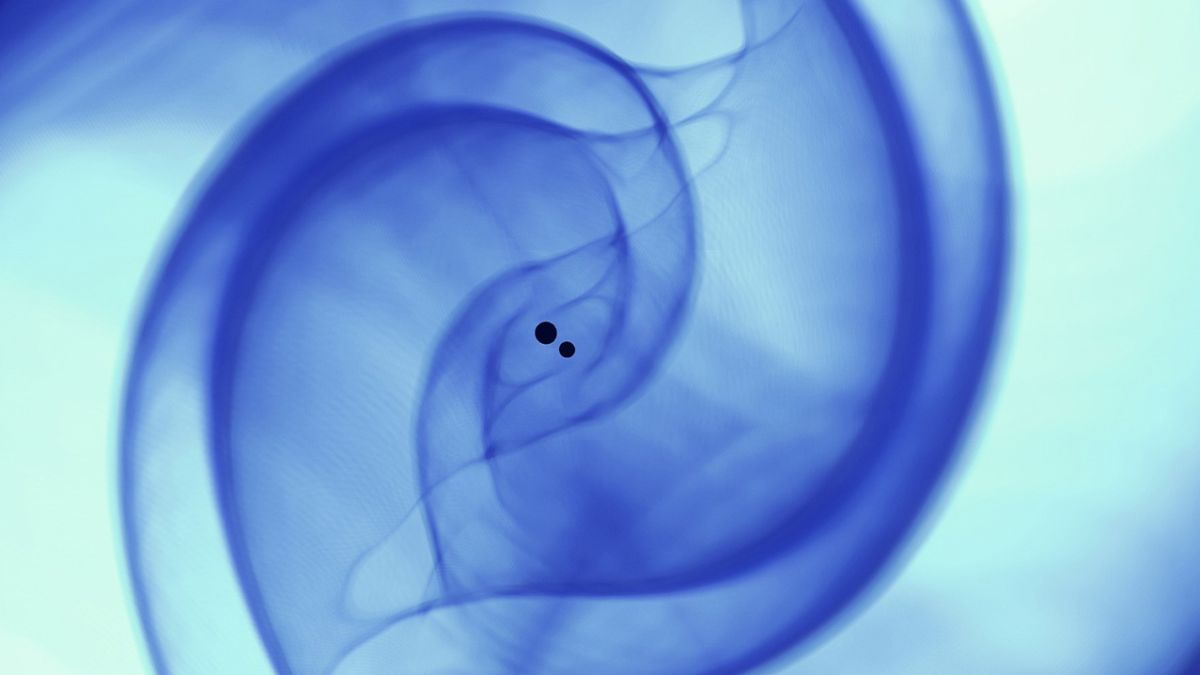
Scientists hunting for elusive gravitational waves across the universe may be able to supercharge their discoveries with a new tool: artificial intelligence.
Gravitational waves are ripples in spacetime, created when a massive object is accelerated or disturbed, such as when a black hole and a neutron star collide. Theorized by Albert Einstein, their existence was confirmed in 2015 with the first gravitational wave discovery by researchers using LIGO (the advanced Laser Interferometer Gravitational-Wave Observatory). Now, just six years later, there have been at least 50 gravitational wave events detected.
However, while scientists continue to detect gravitational waves, some think that, by using artificial intelligence (AI), researchers could spot these signals much faster and, therefore, more often. In a new study, researchers show how this could be possible using supercomputing and AI technology.
Related: Hunting gravitational waves: The LIGO laser interferometer project in photos
“In this study, we’ve used the combined power of AI and supercomputing to help solve timely and relevant big-data experiments. We are now making AI studies fully reproducible, not merely ascertaining whether AI may provide a novel solution to grand challenges,” Eliu Huerta, a computational scientist at the U.S. Department of Energy’s Argonne National Laboratory, who led this research alongside collaborators from Argonne, the University of Chicago, the University of Illinois at Urbana-Champaign, NVIDIA and IBM, said in a statement.
Within this new study, the team developed an AI framework that they hope could be used for fast, scalable and reproducible gravitational wave detection, according to the same statement. The team suggests that this framework could be much faster than existing methods and would only require a fairly basic and inexpensive graphics processing unit (GPU) to process LIGO data. For reference, such GPUs are commonly used in video game systems.
With the AI framework, the team processed an entire month of LIGO data from 2017 in less than seven minutes and then identified all four of the gravitational wave signals caused by black hole mergers. Scientists had previously identified the same four signals, according to the statement.
“As a computer scientist, what’s exciting to me about this project is that it shows how, with the right tools, AI methods can be integrated naturally into the workflows of scientists — allowing them to do their work faster and better — augmenting, not replacing, human intelligence,” Ian Foster, director of Argonne’s Data Science and Learning division, said in the same statement.
This work was detailed in a study published July 5 in the journal Nature Astronomy.
Email Chelsea Gohd at [email protected] or follow her on Twitter @chelsea_gohd. Follow us on Twitter @Spacedotcom and on Facebook.
Source: https://www.space.com/artificial-intelligence-gravitational-waves-discoveries